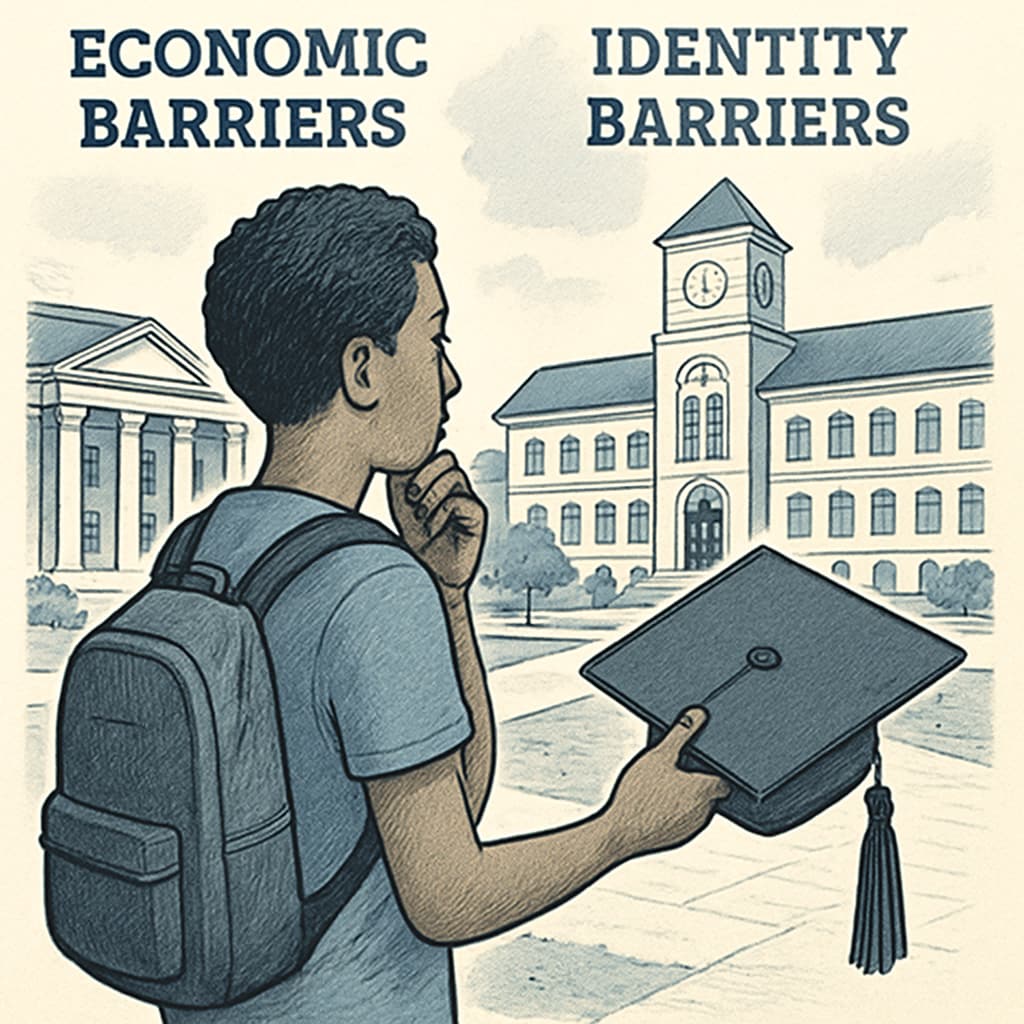For many immigrant students in the UK, gaining admission to world-renowned institutions like Oxford University is a monumental achievement. However, the dream of higher education often turns into a financial nightmare due to exorbitant international tuition fees and restrictive immigration policies. These barriers not only limit access to quality education but also perpetuate systemic inequalities, raising pressing questions about fairness and social mobility in the UK’s higher education system.
Financial Barriers: The Burden of International Tuition Fees
One of the most significant challenges immigrant students face is the financial burden of being classified as international students. Even for those who have lived in the UK for years, limited residency status often prevents them from qualifying for domestic tuition rates. Instead, they must pay international fees, which can be two to three times higher than those for local students. For example, the tuition for undergraduate programs at Oxford University can exceed £30,000 annually for international students, compared to around £9,000 for domestic students.
These exorbitant costs are especially daunting for families with limited financial resources. Many immigrant families already face economic hardships, and the added burden of high tuition fees makes higher education an unattainable goal for their children. Without access to affordable student loans or scholarships tailored to their unique circumstances, many talented students are forced to abandon their academic aspirations.

Identity Restrictions: Barriers Beyond Finances
In addition to financial challenges, identity restrictions further complicate access to higher education. Immigration laws in the UK often categorize students based on their residency status, such as limited leave to remain (LLR) or refugee status. These classifications not only determine tuition rates but also limit access to government-funded financial aid and scholarships.
For instance, students with LLR may not meet the residency requirements to qualify for domestic tuition fees or financial support, despite living in the UK for most of their lives. This creates a paradox where students are socially integrated but institutionally excluded. These restrictions disproportionately affect students from marginalized communities, compounding existing inequalities and reducing their chances of upward mobility.
The Broader Implications for Education Equity
The combination of financial and identity-based barriers has far-reaching consequences for education equity in the UK. When talented students are excluded from higher education due to circumstances beyond their control, society loses out on their potential contributions. Furthermore, the perpetuation of systemic barriers undermines the principle of meritocracy, fostering a cycle of inequality that spans generations.
Studies have shown that higher education is one of the most effective pathways for social mobility. However, the current system disproportionately favors those with stable residency status and financial resources. This not only limits opportunities for immigrant students but also weakens the diversity and inclusivity of UK universities, which benefit from a broad range of perspectives and experiences.

Potential Solutions and Policy Recommendations
Addressing these challenges requires a multi-faceted approach. Policymakers must consider revising residency requirements to ensure that long-term immigrant residents can access domestic tuition rates. Additionally, universities should expand scholarship programs specifically for immigrant students who face financial and identity restrictions.
- Residency Reform: Simplify the criteria for accessing domestic tuition rates, particularly for students who have lived in the UK for an extended period.
- Targeted Scholarships: Establish scholarships for students with limited residency status to offset the cost of international tuition fees.
- Financial Aid Awareness: Increase awareness of existing financial aid programs and create resources tailored to immigrant students.
In addition, fostering partnerships with non-profit organizations and private sector initiatives can provide additional funding and mentorship opportunities for immigrant students. By addressing these systemic barriers, the UK can take meaningful steps toward creating a more equitable higher education system.
Conclusion: Breaking Down the Invisible Walls
The challenges faced by immigrant students in the UK—high international tuition fees and restrictive identity policies—highlight the hidden barriers within the higher education system. Institutions like Oxford University represent the pinnacle of academic achievement, yet their doors remain out of reach for many talented students due to systemic inequities.
By prioritizing policy changes and creating targeted support systems, the UK can ensure that higher education is accessible to all, regardless of immigration status. Only then can the country truly realize the potential of its diverse and dynamic population, fostering a more inclusive and equitable society for future generations.
Readability guidance: Short paragraphs and clear headings improve readability. Lists and examples provide concise summaries, while transitions like “however” and “in addition” ensure smooth flow. Active voice predominates, with limited use of passive constructions.


